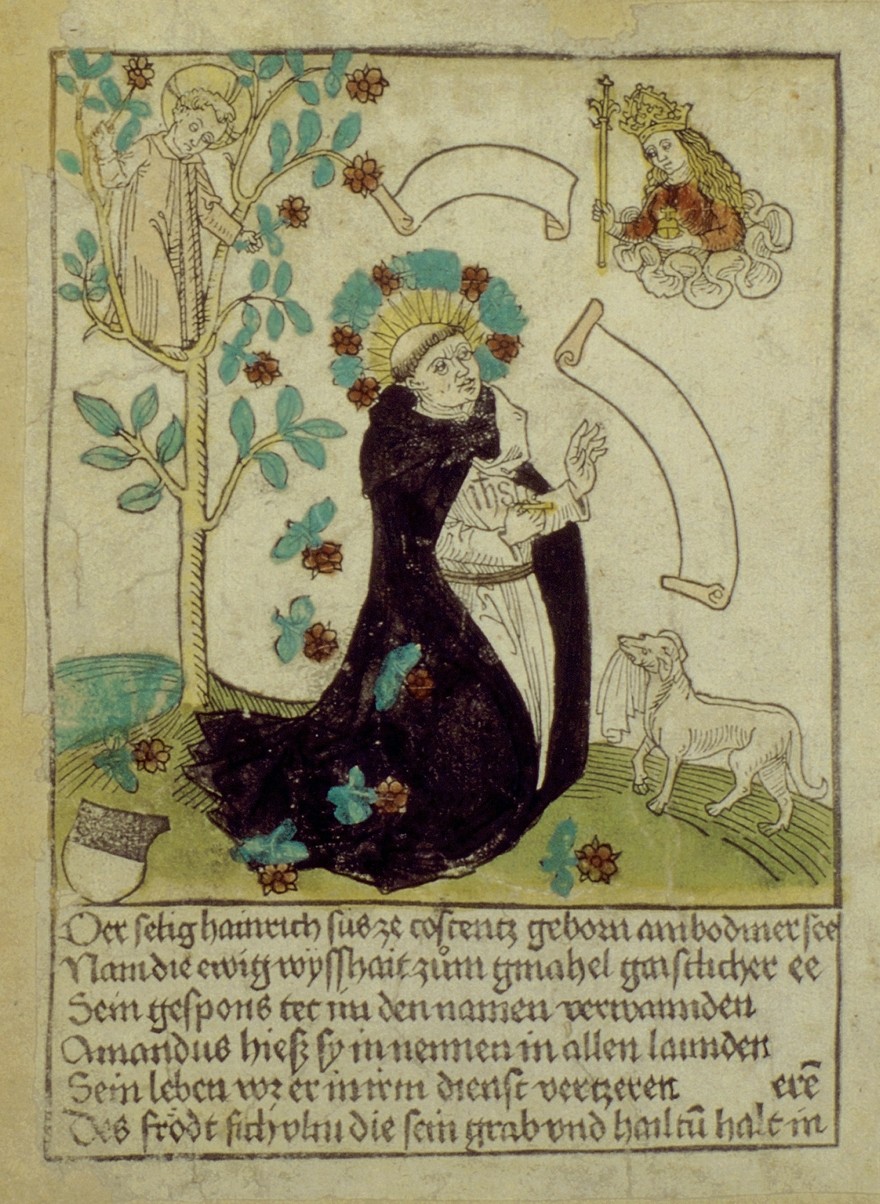„Bleib' auf nichts, das nicht Gott ist.“
Das Leben Heinrich Suso's, LIII. Kapitel, zitiert nach: Heinrich Suso's Leben und Schriften, Hrsg. Melchior Diepenbrock, Dritte Auflage, Verlag der Karl Kollmann'schen Buchhandlung, Augsburg 1854, S. 135,
Originalzitat: "Blib uf niht, daz got nút ist."- Leben Seuses, Kap. IL., in: Heinrich Seuse, Hrsg. K. Bihlmeyer, Stuttgart 1907, S. 169, Zeile 14, archive.org https://archive.org/details/deutscheschrift01seusgoog
